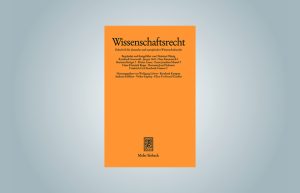In their article, Tobias Mast and Martin Fertmann examine the growing inclusion of access to research data in digital regulatory legislation at the national and European levels (e.g., NetzDG, UrhDaG, and DSA). You can access the article in German free of charge.
 This article was written as part of the “DSA Research Network,” run by the Institute for Information Law (IViR) at the University of Amsterdam, the Alexander von Humboldt Institute for Internet and Society (HIIG) in Berlin, and the HBI.
This article was written as part of the “DSA Research Network,” run by the Institute for Information Law (IViR) at the University of Amsterdam, the Alexander von Humboldt Institute for Internet and Society (HIIG) in Berlin, and the HBI.
Mast, Tobias; Fertmann, Martin (2024): Forschungsdatenzugang und Technologieregulierung. Wissenschaft als Regulierungshilfstätigkeit? [Research Data Access and Technology Regulation. Science as a Regulatory Support Activity?]. In: Wissenschaftsrecht (WissR), 57(2), pp. 101–128. DOI: 10.1628/wissr-2024-0011.
Abstract
At the EU and national levels, access to data sought for research purposes is granted on a privileged basis. While access rights to public authorities’ registers and databases are granted to researchers in a way that largely preserves scientific autonomy, legal acts dealing with digital and platform phenomena take a different approach. These acts only grant access to data for research purposes that will promote their regulatory objectives. Of the many questions and projects that could rely on company-held data, only a pre-curated portion can be processed. Through thematic and final conditions for granting access, the legislator influences research and puts it at the service of medium- and long-term considerations of rational regulation. While this may make sense from a regulatory standpoint, such access to research data under digital law places considerable strain on academic freedom.

